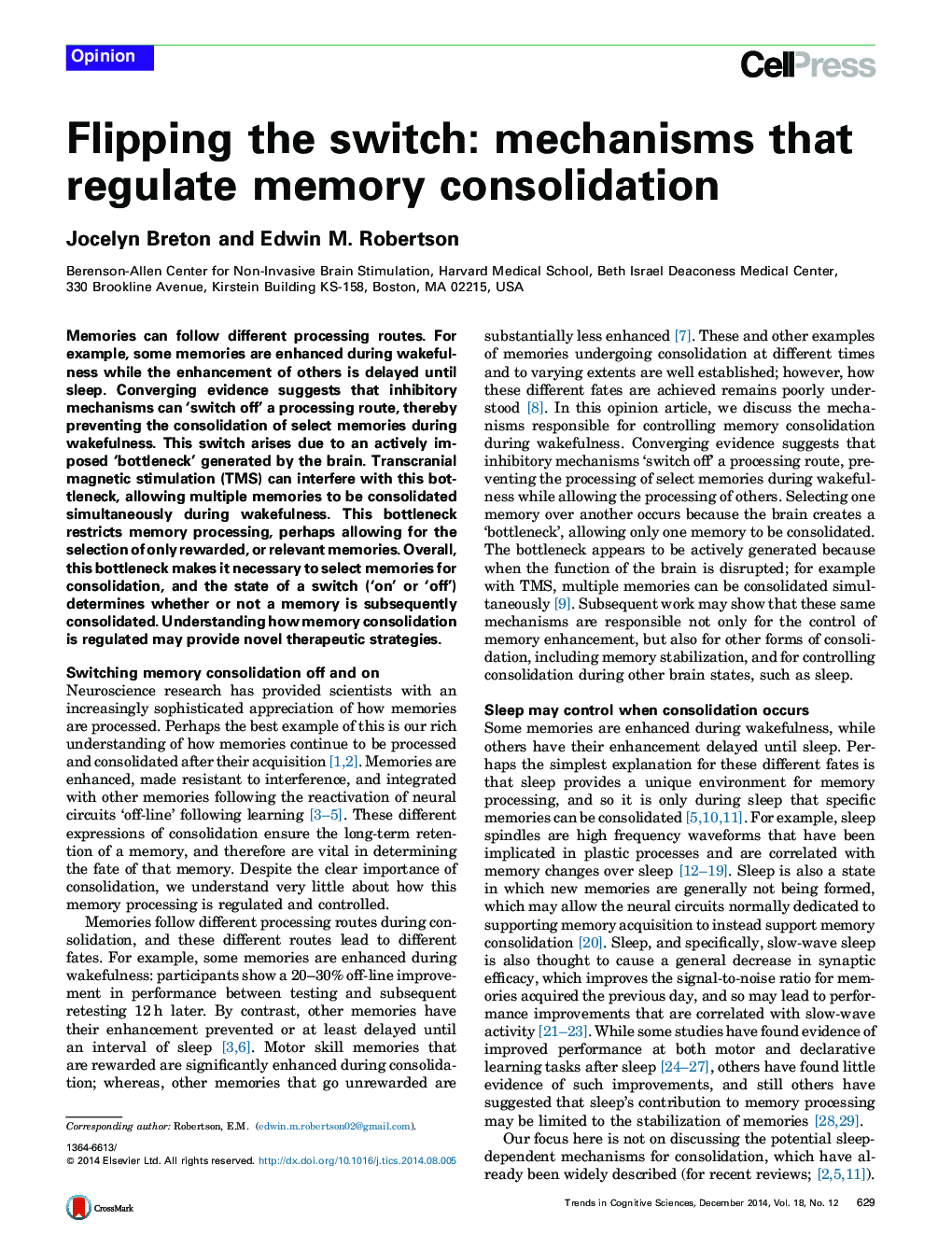| Article ID | Journal | Published Year | Pages | File Type |
|---|---|---|---|---|
| 141433 | Trends in Cognitive Sciences | 2014 | 6 Pages |
•Consolidation can be immediate or delayed; how this control is achieved is unclear.•A decrease in cortical excitability prevents, and thereby delays, memory consolidation.•Removing this physiological signal allows memory consolidation to occur immediately.•This inhibitory control limits memory capacity, requiring selective consolidation.
Memories can follow different processing routes. For example, some memories are enhanced during wakefulness while the enhancement of others is delayed until sleep. Converging evidence suggests that inhibitory mechanisms can ‘switch off’ a processing route, thereby preventing the consolidation of select memories during wakefulness. This switch arises due to an actively imposed ‘bottleneck’ generated by the brain. Transcranial magnetic stimulation (TMS) can interfere with this bottleneck, allowing multiple memories to be consolidated simultaneously during wakefulness. This bottleneck restricts memory processing, perhaps allowing for the selection of only rewarded, or relevant memories. Overall, this bottleneck makes it necessary to select memories for consolidation, and the state of a switch (‘on’ or ‘off’) determines whether or not a memory is subsequently consolidated. Understanding how memory consolidation is regulated may provide novel therapeutic strategies.
